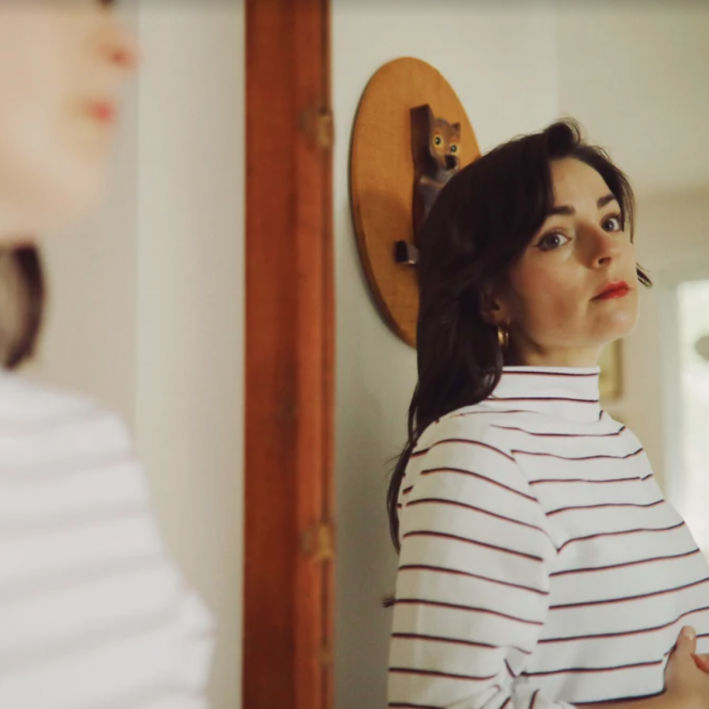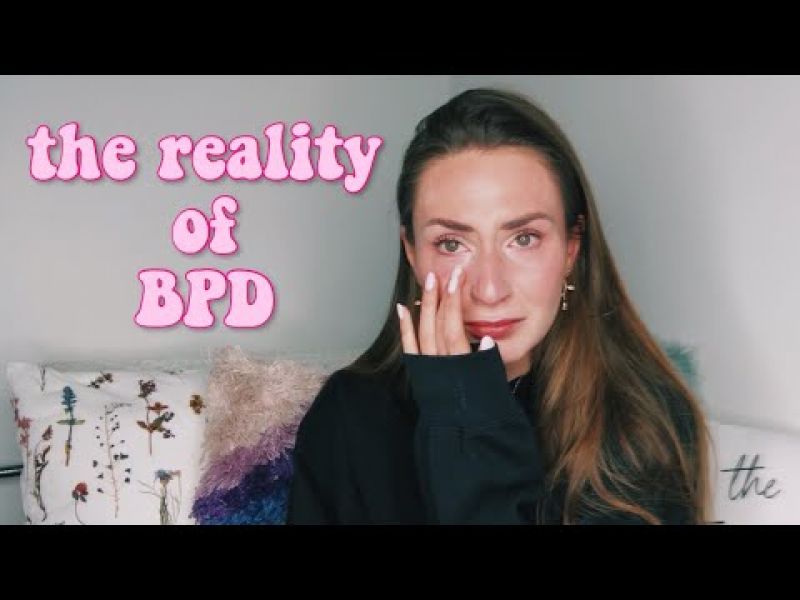It Wasn't Allergies
My journey to rock bottom and back.
Written by Stephanie Vicente

01 Stephanie is a mental health advocate, public speaker and writer who has been vocal about her life with borderline personality disorder.
02 She spent over seven years battling a misdiagnosis, severe anxiety and an addiction to Ativan.
03 After receiving a proper diagnosis, she started seeing a psychiatrist who practiced cognitive behavior therapy and dialectical behavior therapy.
04 The biggest lesson she's learned is that too much empathy can lead to a place where a person can no longer distinguish between themselves and those they love. This can spiral and lead to unhealthy behaviors.
“It’s probably allergies,” the child psychologist said. “A foggy brain can be a symptom of seasonal allergies, or hormones. You’re thirteen and your body is going through a lot of changes.”
My mother and I walked out feeling a little unsatisfied. Surely a mini mental breakdown triggered by a feeling of deja vu while watching a movie is not related to the effects of pollen on my immune system. I’d been sent to a psychologist because I had feelings of fogginess so thick it felt like I was completely disconnected from my body.
As an exemplary student and star gymnast, this sensation of parting from myself was deeply troubling to me. What if I stop being so sharp? What if my reflexes aren’t fast enough at my next meet? But the biggest question was, how do I know I’m alive?
I asked myself this for years while navigating through the thick haze of my psyche. I even concocted a theory that I had in fact died years before and was living in a dream-like state of the afterlife. I frequently questioned what was real and if anything existed outside of myself. This stream of inquiry continued well into young adulthood, but grew more severe alongside other equally troubling sensations.
“I’ve been feeling extremely emotional and insecure,” my 18-year-old-self told my doctor.
“Do you have thoughts of hurting yourself?” she asked.
“Yes but it’s more like I just want to be dead so I stop feeling anything. I don’t want to hurt myself.”
“Do you think you feel anxious?”
“I’m not sure how that would feel. Like, nervous?” I asked.
“Yes, it would be feeling like you’re nervous and maybe your heart would be racing.”
“Yeah, it feels kind of like I’m about to compete. Except instead of it going away after a few seconds it stays for hours.”
“That sounds like anxiety. I can prescribe you something for that, and for the sadness,” she said, comforting me the best way she could. I walked out with a prescription for Cipralex and Ativan and a new sense of hope.
Seven years, countless intense relationships, and endless tears later, I hit what people refer to as rock bottom.
I was exceedingly addicted to Ativan and was taking dozens of pills a day just to keep the anxiety at arm’s length. But as time passed, that arm became weaker and shorter and no amount of prescription drugs could alleviate the anxiety anymore.
I’d fill my prescription at one pharmacy, head to a walk-in clinic, get another prescription, and fill it again at another pharmacy, all in the same week. I needed to make sure I had a steady supply. Even in a drug-induced state, the anxiety was surging through me like a kettle on a stove about to boil.
With anxiety, there comes a point where there’s no turning back and no controlling it. This point, for me, comes just moments after my heart begins racing, my butt cheeks start tingling, and my palms get cold. There’s a small window in there where I can still turn things around.
I know this now, but didn’t know this then. Despite my myriad efforts to find therapy and medical attention, I had no coping tools. So, nearly every single day for seven years, if something big or small set off that anxiety, I’d cross over to the point of no return. That place was scary every time. To cope, I’d smack my head against the wall or punch myself and then I’d take more Ativan.
The scariest time arrived at the end of those seven years, when I went through yet another heartbreak that felt like the end of my entire world. It wasn’t, of course, but it felt like it.
I rounded up all the Ativan I had, slept over at one of my dearest friend’s houses, and awoke in the morning to take all of the pills. I knew I was going to do this but I didn’t know when. I brought my stash with me so that if the moment struck I’d be able to act. The moment arrived in the morning when I opened my eyes and began to cry before I was fully conscious. I woke up hours later in the hospital.

Living with Borderline Personality Disorder
What it’s really like to live with BPD, in Olivia's words.
Six weeks later, and I was armed with some better tools for coping with the anxiety, but even more importantly, I left with a diagnosis that nullified any of the assumptions my previous doctors had made about me. I wasn’t suffering from an anxiety disorder or depression, I was dealing with something that required a completely different approach to mental health rehabilitation.
When the psychiatrist, after five weeks of lengthy scrutiny and discussion, said “borderline personality disorder,” I was appalled. “Isn’t that really bad?” I asked.
This was the first time any professional had really spent the time to truly listen to me. It’s unfortunate that it took an overdose to get the help and resources needed to send me on a journey towards recovery. I’d later learn that BPD is no worse or better, just different.
Post-hospital, I started seeing a psychiatrist who also practiced cognitive behavior therapy and dialectical behavior therapy. This was similar to what I did at the hospital, so my new psychiatrist worked with me on a weekly basis for several years.
He changed my medication and got me entirely off of the Ativan. He demystified a lot of the preconceived beliefs I had about BPD, which were mainly realized by the media and Hollywood. He explained to me that people like me have moods that are almost entirely determined by external factors. That people like me feel everything so strongly and so intensely that we have an incomparable capacity for empathy. He showed me the uniquely prosperous qualities in me and how to leverage this personality disorder for the good of others and myself.
Over the years, the biggest lesson I’ve learned is that when you’re living with BPD, that superpower called empathy can lead us to a place where we can no longer distinguish between ourselves and those we love. This is not a healthy place.
This place is devoid of the most important aspect of empathy: the other. This place is self-serving. This place is where we go when we’re afraid you’ll leave us. This place is where we’ll go to extreme lengths to keep you from leaving us, even if that means hurting ourselves or hurting you. I try hard not to go to that place, but I admit that even after years of commendable progress, I dip my toe in it from time to time.
About the author
Stephanie is a mental health advocate, public speaker and writer. She's been outspoken about borderline personality disorder and its challenges while trying to debunk the stigma that surrounds her diagnosis. You can find her on Instagram and Twitter @stephyvicente and @herdmag.
Support our work
We’re on a mission to change how the world perceives mental health.



















